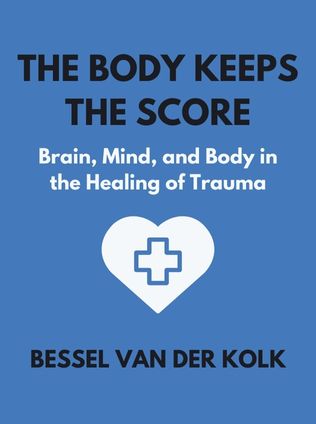
The Body Keeps the Score
Brain, Mind, and Body in the Healing of Trauma
By Bessel van der Kolk
Published 06/2014
About the Author
Bessel van der Kolk is a psychiatrist, researcher, and author known for his extensive work in the field of trauma. He has been a pioneer in understanding how trauma impacts both the mind and body and has developed innovative treatments for trauma survivors. His book, The Body Keeps the Score, integrates the latest scientific research with personal stories to explore how trauma reshapes the body and brain and how these changes can be reversed.
Main Idea
The Body Keeps the Score by Bessel van der Kolk explores how trauma affects the mind and body. The book delves into the various ways trauma manifests, the historical evolution of trauma treatment, and the innovative approaches used today to help survivors heal and regain control over their lives.
Table of Contents
- Introduction
- Trauma’s Impact on the Mind
- Trauma’s Impact on the Brain
- Trauma’s Impact on the Body
- Childhood Sources of Trauma
- Treatment Approaches for the Mind, Brain, and Body
Introduction
In The Body Keeps the Score, Bessel van der Kolk sets the stage by discussing the broad definition of trauma and its historical context. He explains how trauma can arise from a single event or prolonged experiences, such as abuse or war, and how it was often misdiagnosed and mistreated in the past. Van der Kolk emphasizes that understanding trauma requires acknowledging its profound effects on both the mind and body.
Trauma’s Impact on the Mind
Trauma survivors often experience a range of mental and emotional challenges, including isolation, distrust, and difficulty connecting with others. They might struggle with feelings of shame and helplessness and suffer from flashbacks that keep them trapped in their traumatic experiences.
“Trauma survivors experience isolation, unable to trust anyone after suffering pain and abuse at the hands of another person.” - Bessel van der Kolk
Isolation and Distrust
Survivors of trauma frequently isolate themselves because they find it hard to trust others. This isolation is compounded by the belief that no one can understand their suffering. This lack of trust extends to difficulty reading emotions and intentions in others, making social interactions even more challenging.
Trauma survivors often develop a sense of learned helplessness, a belief that they are powerless to change their circumstances. This mindset can lead to a deep sense of resignation and depression. The constant state of hypervigilance makes it difficult for them to connect with others or feel safe in social situations.
Flashbacks and Emotional Numbing
Flashbacks are a common symptom, where survivors relive their traumatic experiences triggered by various stimuli. This constant reliving keeps them from being fully present, leading to emotional numbness and a disconnection from life.
“Flashbacks keep survivors stuck in their traumatic event, so that they’re never able to be fully engaged in the present.” - Bessel van der Kolk
Flashbacks can be triggered by sights, sounds, smells, or even specific phrases that remind the survivor of their trauma. These experiences can be so vivid that the individual feels as though they are reliving the traumatic event. This makes it challenging for them to stay grounded in the present and fully engage with their current environment.
Emotional numbing is another coping mechanism where survivors shut down their emotions to avoid the overwhelming feelings associated with their trauma. While this helps them manage day-to-day life, it also prevents them from experiencing joy and connection, leading to a sense of emptiness and isolation.
Trauma’s Impact on the Brain
Traumatic experiences can significantly alter brain function, causing certain parts to become overactive while others shut down. This imbalance prevents the brain from processing trauma properly, leaving it ever-present in the survivor’s life.
Sign up for FREE and get access to 1,400+ books summaries.
You May Also Like
The Subtle Art of Not Giving a F*ck
A Counterintuitive Approach to Living a Good Life
By Mark MansonRich Dad Poor Dad
What the Rich Teach Their Kids About Money - That the Poor and Middle Class Do Not!
By Robert T. KiyosakiHow To Win Friends and Influence People
The All-Time Classic Manual Of People Skills
By Dale CarnegieFreakonomics
A Rogue Economist Explores the Hidden Side of Everything
By Steven D. Levitt and Stephen J. Dubner



















